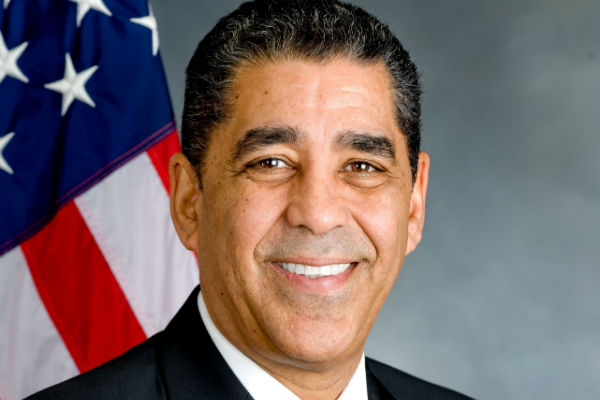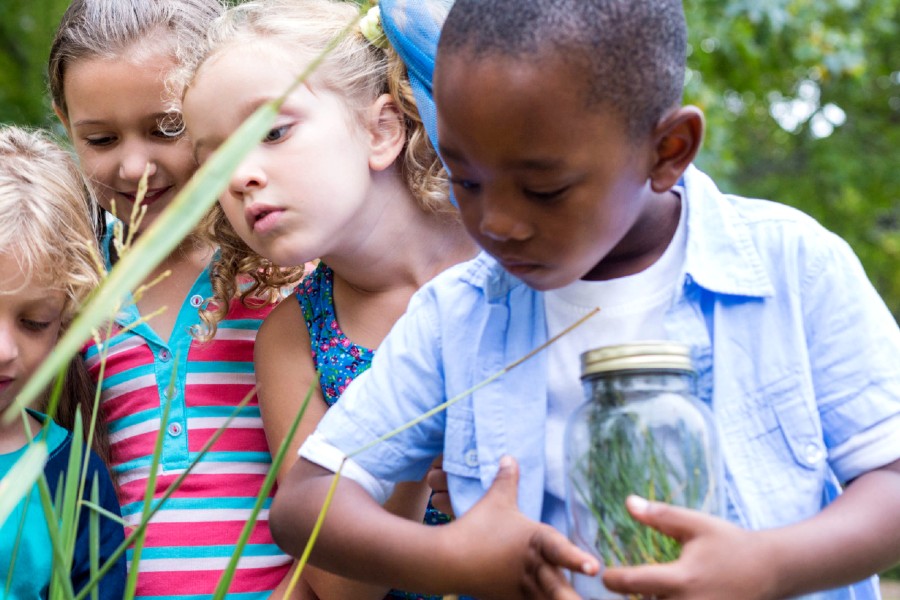 Dear Friend,
Dear Friend,
The respiratory disease caused by coronavirus, first detected in Wuhan City, Hubei Province, China, has now been detected in 50 locations internationally. While the family of coronaviruses has been around for some time, the Novel Coronavirus Disease 2019, or COVID-19, is a new strain of coronavirus.
In responding to the spread of the COVID-19, Congress will work with Federal, State, and Local professionals to address this new public health issue in a smart, strategic, and serious manner. We want to be fully prepared moving forward to ensure adequate funding utilizing the best scientific information and evidence-based decision-making.

The first step Congress must take is to ensure the government experts at the Centers for Disease Control and Prevention and National Institutes for Health have the resources and capacity to handle this issue and that local public health institutions at the New York State Department of Health and New York City Department of Health and Mental Hygiene can respond to any acute cases. That is why the House will be advancing a strong, strategic emergency funding supplemental that supports the multi-faceted response to this public health situation.
There have been two confirmed cases of COVID-19 reported in New York. We are fortunate that New York has experienced professionals, expertise, and dedicated health care workforce focused on the health and safety of all New Yorkers. As Governor Andrew M. Cuomo announced yesterday, New York’s world-renowned Wadsworth Center — the research-intensive public health laboratory housed within the State Department of Health — is working towards a testing capacity to 1,000 tests per day statewide for the novel coronavirus. As Mayor Bill de Blasio has said, those in New York City who may have questions or concerns about any symptoms or health should call 311 and all efforts will be made to direct medical attention in a prompt manner.
According to the Centers for Disease Control and Prevention (CDC), there is currently no vaccine to prevent COVID-19. The best way to prevent illness is to avoid being exposed to this virus. The CDC recommends everyday preventive actions to help prevent the spread of respiratory diseases, including:
- Avoid close contact with people who are sick.
- Avoid touching your eyes, nose, and mouth.
- Stay home when you are sick.
- Cover your cough or sneeze with a tissue, then throw the tissue in the trash.
- Clean and disinfect frequently touched objects and surfaces using a regular household cleaning spray or wipe.
Follow CDC’s recommendations for using a facemask:
- CDC does not recommend that people who are well to wear a facemask.
- Facemasks should be used by people who show symptoms of COVID-19 to help prevent the spread of the disease to others.
- The use of facemasks is also crucial for health workers and care takers.
Wash your hands often and vigorously with soap and water for at least 20 seconds, especially after going to the bathroom; before eating; and after blowing your nose, coughing, or sneezing. If soap and water are not readily available, use an alcohol-based hand sanitizer with at least 60% alcohol. Always wash hands with soap and water if hands are visibly dirty.
For more information on the coronavirus, please visit here.
If you are planning on traveling, please visit the CDC’s Information for the Travel guide.
Rep. Adriano Espaillat (NY-13)
Member of Congress
Spanish
Apreciado amigo,La enfermedad respiratoria causada por el coronavirus, detectada por primera vez en la ciudad de Wuhan, provincia de Hubei, China, ahora se ha detectado en 50 lugares a nivel internacional. Si bien la familia de los coronavirus ha existido durante algún tiempo, la reciente enfermedad del coronavirus 2019, o COVID-19, es una nueva cepa de coronavirus.
Al responder a la propagación del COVID-19, el Congreso trabajará con profesionales federales, estatales y locales para abordar este nuevo problema de salud pública de una manera inteligente, estratégica y seria. Queremos estar completamente preparados para avanzar y asegurar una financiación adecuada utilizando la mejor información científica y la toma de decisiones basada en evidencia.
El primer paso que debe tomar el Congreso es garantizar que los expertos gubernamentales de los Centros para el Control y Prevención de Enfermedades y los Institutos Nacionales de Salud tengan los recursos y la capacidad para manejar este problema y que las instituciones locales de salud pública del Departamento de Salud del Estado de Nueva York y el Departamento de Salud e Higiene Mental de la Ciudad de York pueden responder a cualquier caso severo. Es por eso que la Cámara de Representantes avanzará un fuerte complemento estratégico de financiamiento de emergencia que respalde la respuesta multifacética a esta situación de salud pública.
Ha habido dos casos confirmados de COVID-19 reportados en Nueva York. Somos afortunados de que Nueva York tenga profesionales experimentados, la pericia y una fuerza laboral dedicada a la atención médica enfocada en la salud y seguridad de todos los neoyorquinos. Como anunció ayer el gobernador Andrew M. Cuomo, el mundialmente reconocido Centro Wadsworth de Nueva York, el laboratorio de salud pública intensivo en investigación ubicado dentro del Departamento de Salud del Estado, está trabajando para lograr una capacidad de prueba de 1,000 pruebas por día en todo el Estado para el nuevo coronavirus. Como ha dicho el alcalde Bill de Blasio, aquellos en la ciudad de Nueva York que puedan tener preguntas o inquietudes sobre cualquier síntoma o de salud deben llamar al 311 y se harán todos los esfuerzos para dirigir la atención médica de manera oportuna.
 De acuerdo con los Centros para el Control y Prevención de Enfermedades (CDC), en la actualidad no existe una vacuna para prevenir el COVID-19. La mejor forma de prevenir la enfermedad es evitar la exposición a este virus. Sin embargo, como recordatorio, los CDC siempre recomiendan medidas preventivas cotidianas para ayudar a prevenir la propagación de enfermedades respiratorias. Estas medidas incluyen:
De acuerdo con los Centros para el Control y Prevención de Enfermedades (CDC), en la actualidad no existe una vacuna para prevenir el COVID-19. La mejor forma de prevenir la enfermedad es evitar la exposición a este virus. Sin embargo, como recordatorio, los CDC siempre recomiendan medidas preventivas cotidianas para ayudar a prevenir la propagación de enfermedades respiratorias. Estas medidas incluyen:
- Evitar el contacto cercano con personas enfermas.
- Evitar tocarse los ojos, la nariz y la boca.
- Quedarse en casa si está enfermo.
- Cubrirse la nariz y la boca con un pañuelo desechable al toser o estornudar y luego botarlo a la basura.
- Limpiar y desinfectar los objetos y las superficies que se tocan frecuentemente, usando un producto común de limpieza de uso doméstico en rociador o toallita.
Seguir las recomendaciones de los CDC sobre el uso de mascarillas:
- Los CDC no han hecho recomendaciones para que las personas que no están enfermas usen mascarillas.
- Las personas que presentan síntomas del COVID-19 deberían usar mascarillas para ayudar a prevenir la propagación de la enfermedad a los demás.
- El uso de mascarillas es también esencial para los trabajadores de la salud y las personas que cuidan de alguien en un entorno cerrado (en la casa o en un establecimiento de atención médica).
Lávese las manos frecuentemente con agua y jabón por al menos 20 segundos, especialmente después de ir al baño, antes de comer, y después de sonarse la nariz, toser o estornudar. Si no cuenta con agua ni jabón, use un desinfectante de manos que contenga al menos un 60% de alcohol. Lávese las manos siempre con agua y jabón si están visiblemente sucias.Para más información sobre el coronavirus, por favor visite aquí.Si está planeando viajar, favor visitar la Guía para Viaje de los CDC.
Sinceramente,
Rep. Adriano Espaillat (NY-13)
Miembro del Congreso
Become a Harlem Insider!
By submitting this form, you are consenting to receive marketing emails from: Harlem World Magazine, 2521 1/2 west 42nd street, Los Angeles, CA, 90008, https://www.harlemworldmagazine.com. You can revoke your consent to receive emails at any time by using the SafeUnsubscribe® link, found at the bottom of every email. Emails are serviced by Constant Contact








